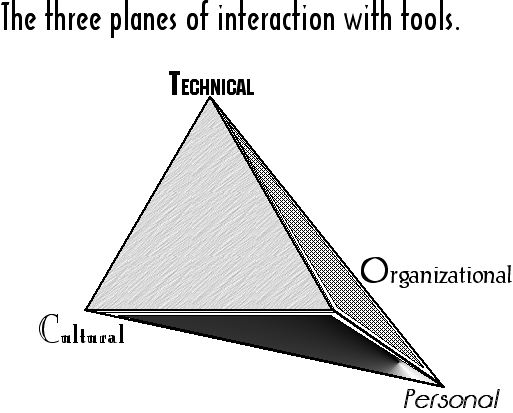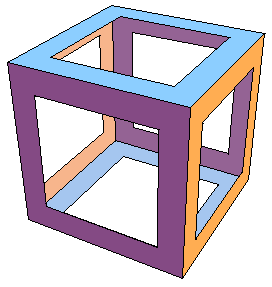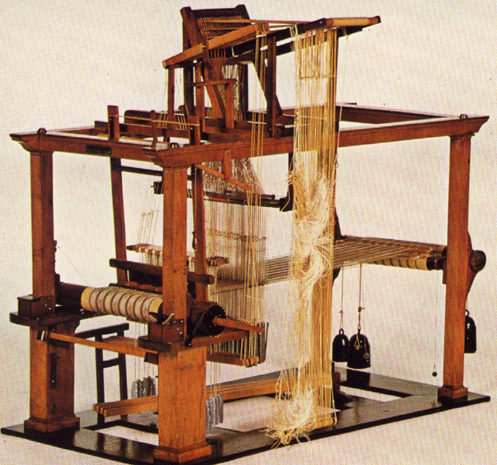Three facets, dimensions, or aspects of technology interact to influence human attitudes and behavioral responses.
| |
|

|
|
"Another way of thinking about this may be to regard all activities involved in practicing or using technology as having several dimensions. In a previous book, I used a triangular diagram to suggest how 'technology practice' not only involves hardware, practical skills and technical knowledge, but also involves an organizational, political dimension, and a 'cultural' aspect relating to values and beliefs."
|
| Pacey Meaning in Technology, p. 7. |
Technology is complex or complicated because of several reasons:
Mary Midgley, philosopher.
"Midgley
argues, though, that it is better to regard different kinds of knowledge as
coming from different viewpoints, and these ought not be arranged in a hierarchy."
"She points out that not only are 'fundamental sciences' sometimes given 'despotic' status, but so are ideological systems and religions."
By making one or any of these sources of knowing more important than the other, Mary Midgley asserts and Pacey agrees with her especially in seeking "the academic dream of pure sanitized objectivity, only leads us to conceal essential material."
Pacey,
Meaning in Technology, pp.7-8.
"only by adopting a psychoanalytic view will we discover what technology is really
about."

| Dimensions |
of practice |
of experience |
kind
of meaning |
|
Technical |
craft,
mechanics |
work |
knowledge
of resources, equipment, & materials |
|
Organizational |
labor,
order |
institutions |
knowledge
of economy, society, & politics |
|
Cultural |
performance |
ritualistic
behavior |
knowledge
of arts, language, religion, & beliefs |

One dimensional
thinking is a liability
"But there
is no 'only' about it. We need to use political economy to understand some problems,
and psychoanalytic insights to understand others."
"The dynamic
of technological change seems to reflect a synergy among:
psychological,
{ motivations, feelings, behavioral
responses, appetite and imagery
institutional,
{ organizations, corporate structure,
property, capital, labor and religions
and larger
socioeconomic
movements." { agricultural,
mechanical, electronic, demographic revolutions
"There should be no reductionist scheme for dealing with everything in terms of a single mode of explanation."
"The dynamic of technological change seems to reflect a synergy among psychological, institutional, and larger socioeconomic movements."
"It is a mistake
to assume that any one part of this complex is the key to all of it."
Pacey,
pp. 8-9.

The automated or power loom, water powered, French, from the late 18th Century replaced hand-woven textiles.
Lesson
In speaking and in writing use examples like the power loom to explain the three dimensions of technology and examine the influence of many tools on each facet of human life: technical or formal, organizational, or institutions, and the psychological or cultural constraints.

Sources:
Pacey, The Culture of Technology, p. 6.
Pacey Meaning in Technology, p. 8.
Pacey, The Maze of Ingenuity.
Pacey, Technology in World Civilization.
Pursell
| Pacey | Pursell
all Chapters | Pacey Chapter One| Postman
| Kaku | Time-Line | Core
Pacey
Meaning | Syllabus | Core
| Pursell |
Pursell Contents
Topic
Overview
Cultural lag
Three facets
of technology and use of tools

White
Heat
Science index | Site | Technology | Meaning | Recent | Web site home









